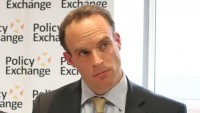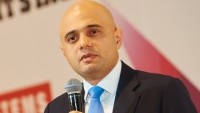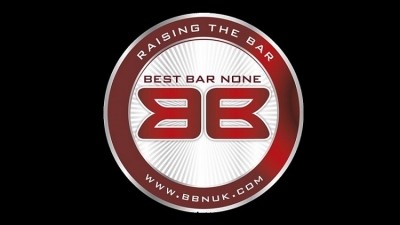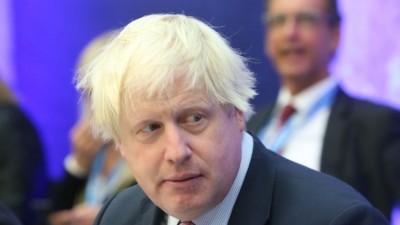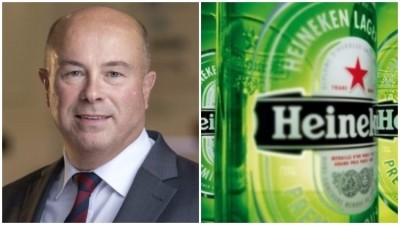Tory leadership election: the candidates’ recent records on pubs
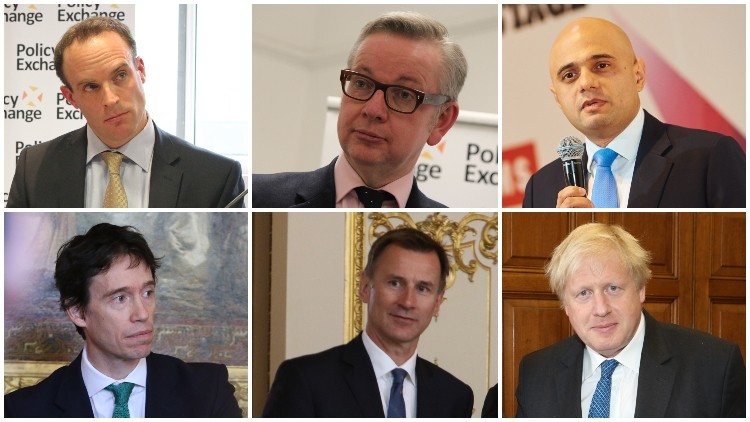
While the race to become the next leader of the Conservative Party, and Prime Minister, only officially started on 10 June after Theresa May announced her plan to resign on 24 May, would-be leaders have been eyeing the top job for well over a year.
However, before taking on the unenviable task of negotiating the United Kingdom’s exit from the European Union, candidates will need to navigate more than a month-long leadership contest.
A series of ballots of Tory MPs – with the least popular candidate dropping off the list after each – will be held until just two candidates remain, with the Conservative Party’s 124,000 members (as of March 2018) then choosing the winner. A candidate achieving more than 50% of the vote will be declared party leader and Prime Minister.
We take a look at the runners and riders’ recent record on the pub trade:
Boris Johnson
Gaff-prone former foreign secretary, London Mayor and Brexit frontman Johnson is an overwhelming favourite to become the next Conservative leader and Prime Minister.
But could this somehow be good news for pubs? Shortly after being appointed foreign secretary in 2016, Boris Johnson was voted the politician most trusted to run a pub, with almost a fifth (22%) of those surveyed by YouGov on behalf of the Campaign for Real Ale (CAMRA) claiming they would trust the former Mayor of London with their business.
Most of Boris Johnson’s recent engagement with the on-trade came about while he was Mayor of London between May 2008 and May 2016. He has never been required to vote on requiring pub companies to offer pub landlords rent-only leases, for example, and has generally voted for higher taxes on alcoholic drinks – registering two votes for and a single absence in 2017.
In a strategic plan published in March 2015, Johnson outlined a plan to help London’s 33 local authorities to protect valued pubs from being lost where possible – representing the first time the role of London’s pubs was recognised in the London Plan.
Additionally, as mayor, Johnson backed the ‘agent-of-change’ principal in an attempt to protect London’s live-music venues – including a large number of pubs.
Moreover, while his successor Sadiq Khan introduced the Night Tube, which transport authority London First estimated could be worth £77m per year by 2029 bringing the value of the capital’s 24-hour economy up to almost £30bn per year, Khan recognised that Johnson deserved credit for first floating the idea.
Michael Gove
Environment secretary Michael Gove has been leading the fight against single-use plastics and food waste. He confirmed that a ban on plastic straws coming into force in April 2020 would still allow pubs and bars to provide plastic straws on request, and described food waste as a “moral, economic and environmental scandal.”
Moreover, Gove voted in favour of establishing the office of the pubs code adjudicator (PCA) in February 2016, having previously voted against a statutory code of practice for large pub companies and large pub-owning businesses to offer their tenants and leaseholders a market-rent-only (MRO) option in 2014.
However, Gove was absent for an October 2010 vote on the smoking ban in pubs and private members’ clubs and has generally voted in favour of higher taxes on alcoholic drinks – registering nine votes for, three against and 10 absences.
Gove has also generally voted against a right to remain for EU nationals already in living in the UK – vital for sector growth according to UKHospitality (UKH) chief executive Kate Nicholls – registering 13 votes against and five absences between 2016 and 2019.
Rory Stewart
A man with momentum, Secretary of State for International Development, Stewart has been absent twice on votes relating to the pub trade – including the February 2016 vote on introducing the PCA and a 2014 vote on pubcos offering tenants MRO.
In 2015, then resources minister Stewart backed plans to reduce food wastage in hospitality – which were estimated to have saved the sector £3.6m.
Moreover, shortly after becoming Conservative MP for Penrith and the Border in 2010, he was said to have lobbied “informally” for Eden Valley in Cumbria to become part of a pilot scheme to help local people take over “community assets” such as pubs.
He previously voted against a statutory code of practice for large pub companies as well as voting against mandating pubcos to offer tenants free-of-tie options.
In addition, Stewart voted to exempt pubs and private members’ clubs from the smoking ban where no food is being served in October 2010.
Moreover, Stewart has almost always voted against a right to remain for EU nationals already in living in the UK and in favour of higher taxes on alcoholic drinks.
Jeremy Hunt
Secretary of State for Foreign and Commonwealth Affairs, Hunt has never been absent on a vote relating to pub leases and in February 2016 voted in favour of establishing the PCA.
In three previous pub-related votes in parliament, however, he voted against requiring pubcos to offer tenants and leaseholders MRO, against a statutory code of practice for large pub companies and against requiring pub companies to offer their tenants free-of-tie options.
Before becoming health secretary in 2012, Hunt was absent for a vote in introducing a smoking ban in pubs and private members’ clubs in October 2010.
Moreover, as reported by The Morning Advertiser in September 2016, then health secretary Jeremy Hunt and Public Health England chief executive Duncan Selbie warned that pubs and other food and drink serving outlets would be “shamed” into reducing the sugar content of their food, if necessary.
Hunt has voted 12 times on the issue of higher taxes on alcoholic drinks between 2013 and 2017 voting 8 times in favour of raising taxes, four times against and registering 10 absences.
Moreover, in 18 votes relating to a right to remain for EU nationals already in living in the UK since the Referendum on EU membership, Hunt has voted in favour once and against 13 times.
Dominic Raab
During his time as Brexit secretary, Dominic Raab outlined “practical and proportionate” advice in case the UK leaves the European Union without a deal on 29 March 2019 – a scenario that UKH said would be a disaster for the hospitality sector.
In February 2016, Raab voted in favour of establishing the PCA. Absent for a 2013 vote to require pubcos to offer free-of-tie options to tenants, Raab voted against a statutory code of practice for large pub companies in January 2014 and against requiring large pub-owning businesses to offer their tenants and leaseholders MRO in November of the same year.
In 17 votes on higher taxes on alcoholic drinks between 2010 and 2017, Raab has voted 13 times in favour and four times against.
Moreover, Raab has generally voted against a right to remain for EU nationals already living in the UK – registering 13 votes against, one vote for, and four absences between since the referendum on EU membership in 2016.
Sajid Javid
Leadership long-shot, current Home Secretary Sajid Javid has engaged with issues affecting the pub and hospitality sectors across multiple roles in Government.
A review led by Javid, then business secretary in 2016, recommended that all tips went to serving staff while during his tenure as communities minister, Javid told MPs that he would work to provide “further support” to businesses hit by increases to business rates – stating that more needed to be done to make the system fairer.
More recently, during his time at the Home Office – which backs pub and bar accreditation scheme Best Bar None – Javid wrote to the Migration Advisory Committee requesting that it reduced the £30,000 salary threshold for EU workers moving to the UK in future – a move welcomed by hospitality trade bodies.
During his time in parliament, Javid has had the opportunity to participate in four votes relating to pubs – but was absent for a November 2014 vote on requiring pub companies to offer tenants MRO.
In January 2013, Javid voted against requiring pub companies to offer free-of-tie options to their tenants and, in January 2014, voted against a statutory code of practice for large pub companies.
In addition, Javid voted in favour of establishing the PCA in February 2016 and voted to exempt pubs and private members’ clubs from the smoking ban where no food is being served in October 2010.
He has voted 17 times on the imposition of alcoholic drink taxes, voting in favour of increases on 13 occasions.
(Image credits: Sajid Javid - Find a Future; Boris Johnson, Rory Stewart and Jeremy Hunt - Foreign and Commonwealth Office; Dominic Raab and Michael Gove - Policy Exchange)




